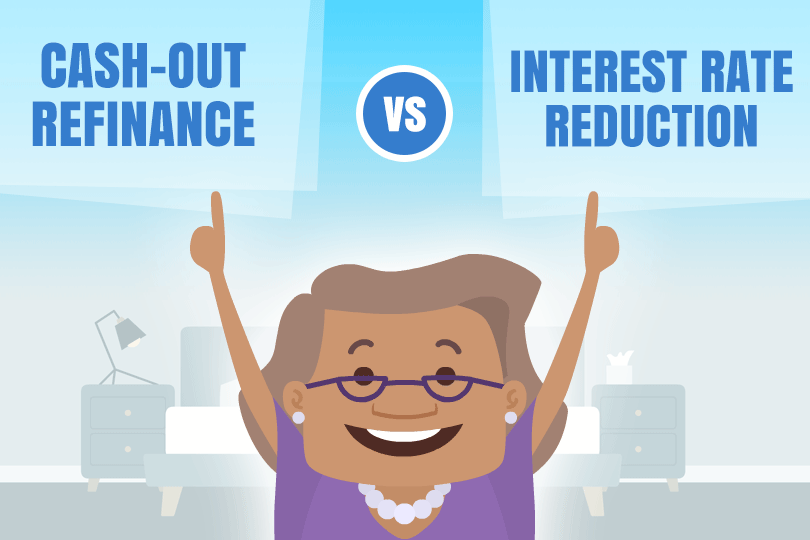FHA Refinance Loans Compared: Cash-Out Vs. Interest Rate Reduction

Naturally the type of refinance loan you apply for will be informed by a need--some borrowers want to refinance to get a lower monthly payment, for example. Others might want to take equity out of their home in cash so they can pay for home improvements, pay off credit cards or student loans, etc.
One type of refinance is definitely better suited to those who want the cash, and one is better for those who want a lower payment or interest rate.
Cash-Out Refinancing Versus Interest Rate Reduction Refinance Loans
FHA cash-out refinancing loans allow you to get equity in your home converted to cash for any purpose acceptable to the lender. The longer you have been paying on your mortgage, the more cash is potentially available.
Cash-out refinance loans require an appraisal because the loan will be based on the current appraised value of the home.
Cash-out refinance loans require a new credit check because the lender has risk with the new loan and wants to make sure you are still a responsible credit user. Cash back to the borrower depends on how much money is left over once the original mortgage is paid off with the new loan, plus closing costs and other expenses on the new loan.
FHA Interest-Rate Reduction Refinance Loans (FHA IRRRLs), on the other hand, do not permit cash back to the borrower. These loans also have no FHA-required appraisal or FHA-required credit check. Your lender may choose to require one anyway, but you can always shop around for a new lender for your new loan.
FHA IRRRLs generally must result in a benefit to the borrower. This can be in the form of a lower monthly payment, and/or interest rate. But you can also use an IRRRL to refinance an adjustable rate mortgage and the benefit in this case is getting into a fixed-rate loan instead.
The biggest difference between cash-out and IRRRL? FHA Cash-out refinancing can be used to refinance ANY mortgage, not just FHA loans. IRRRLs are the opposite--you can ONLY refinance an existing FHA mortgage with an FHA IRRRL.
Purpose-Driven Refinancing
As you can see from the above, your need for the loan will help determine which one is right for you. There are caveats for both types of mortgage--if you refinance with an IRRRL and choose another 30-year loan term, you may pay longer for the same home. For some borrowers this is less important than making sure the payments are affordable month to month. And that is a big consideration for some borrowers.
For cash-out refinancing, the same issue applies but there’s the added factor of what to do with the money--if you choose to pay debts with your cash out refinance loan, it’s best to choose debts that you are NOT likely to run up again in the future once they have been paid off. That is why some advise paying off student loans with cash-out refi money instead of paying down credit card bills--you aren’t likely to run up more student loans, but you ARE likely to use your credit cards once again. Choose carefully!
------------------------------
Learn About the Path to Homeownership
Take the guesswork out of buying and owning a home. Once you know where you want to go, we'll get you there in 9 steps.
Step 1: How Much Can You Afford?
Step 2: Know Your Homebuyer Rights
Step 3: Basic Mortgage Terminology
Step 4: Shopping for a Mortgage
Step 5: Shopping for Your Home
Step 6: Making an Offer to the Seller
Step 7: Getting a Home Inspection
Step 8: Homeowner's Insurance
Step 9: What to Expect at Closing

Do you know what's on your credit report?
Learn what your score means.






